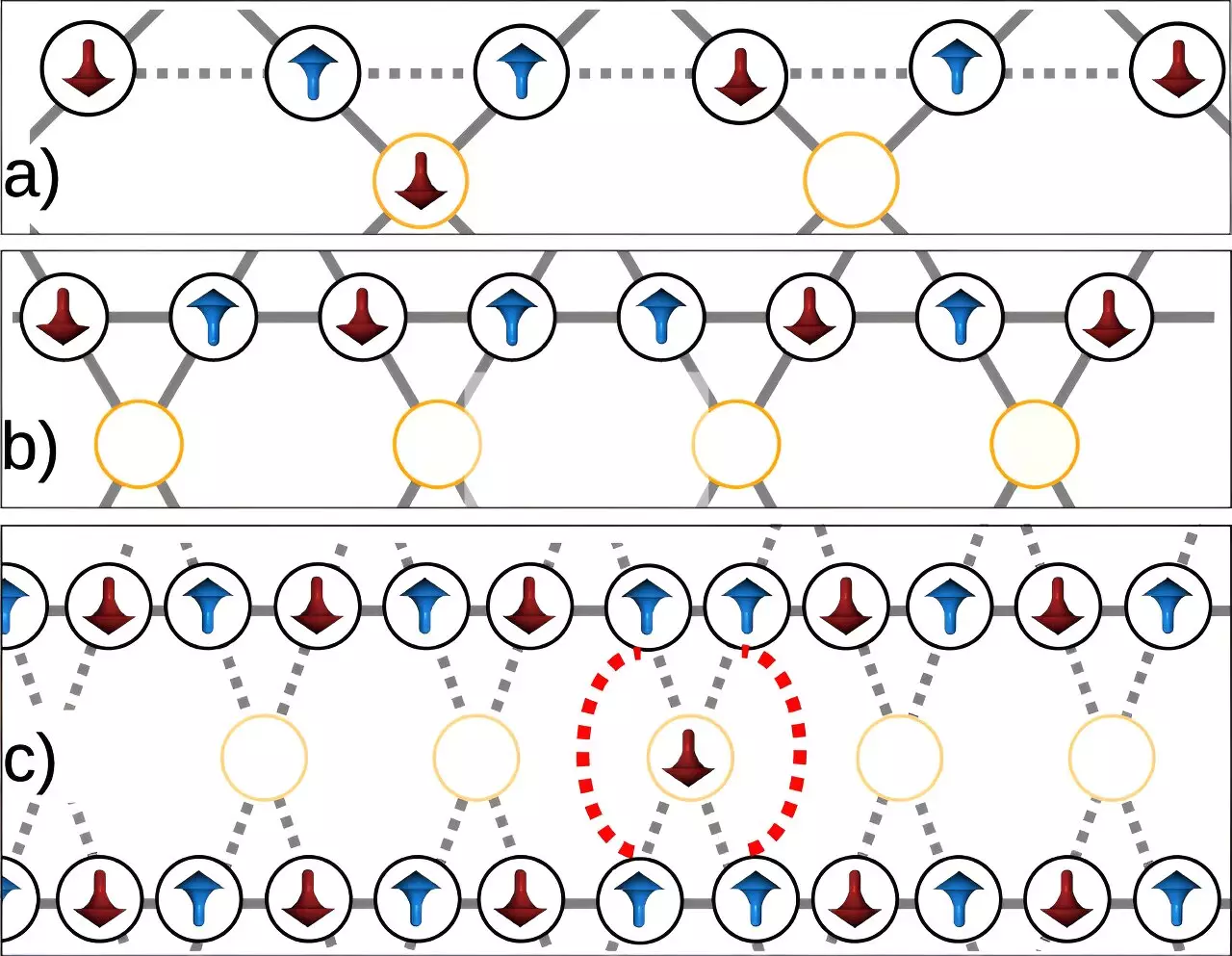In a recent experimental research conducted by Los Alamos National Laboratory and D-Wave Quantum Systems, the paradoxical role of fluctuations in inducing magnetic ordering on a network of qubits was examined. The study aimed at understanding the quantum behavior exhibited by a dense network of interconnected qubits, rather than focusing on superior quantum computer performance over classical counterparts. This analysis of the research will delve into the implications of the findings, challenging conventional assumptions about the relationship between disorder and entropy.
The joint team investigated the complex interplay of approximately 2,000 qubits within an asymmetric hexagonal lattice. They introduced fluctuations, driven by both thermal and quantum effects, to observe the impact on magnetic moments. These fluctuations signified dynamic changes in the alignment and arrangement of the magnetic moments, providing an opportunity to experiment with entropy, magnetic moments, and disorder.
Contrary to prevailing expectations, the research findings revealed a counterintuitive argument. Under specific physical conditions, configurations with a clustered distribution of defects emerged as the more likely state. This challenges conventional assumptions that configurations with higher entropy should exhibit greater disorder. The team demonstrated in a quantum system that ordered states characterized by specific patterns can emerge, even when seemingly disorder-inducing factors are present. This phenomenon is akin to the “order by disorder” process.
The team’s ability to promote order by adding thermal and quantum fluctuations may seem paradoxical at first. However, their detailed observations shed light on how fluctuations influence the mechanisms and physical conditions leading to defect clustering. This insight can guide improvements in the construction of quantum systems and provide new avenues for reducing the cost of quantum processing in devices.
In the future, the development of the D-Wave quantum platform and experimental capabilities will allow researchers to focus specifically on the role of quantum fluctuations. This will enable them to disentangle the influence of thermal fluctuations and gain a deeper understanding of the unique properties of quantum systems. By unraveling the contribution of different types of fluctuations, researchers can pave the way for more efficient and cost-effective quantum technologies.
The experimental research conducted by Los Alamos National Laboratory and D-Wave Quantum Systems has provided valuable insights into the role of fluctuations in inducing magnetic ordering on a network of qubits. The counterintuitive findings challenge conventional assumptions and highlight the potential for promoting order through the utilization of fluctuations. By understanding the complex interplay of qubits and fluctuations, researchers can propel advancements in quantum systems and enhance their performance. The future of quantum research holds great promise in unraveling the mysteries of quantum behavior and harnessing its power for real-world applications.



Leave a Reply